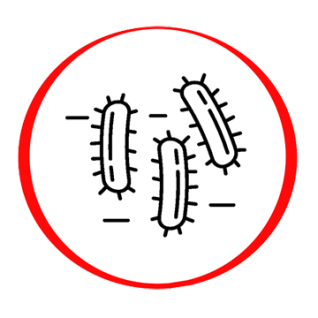Blood take service 5.00€

Measles Virus IgG Antibodies
18.00€
The validity period of online orders: 3 months from the purchase date.
Source of infection - humans.
Mode of transmission. Spreads through the air (aerosol and droplet transmission), as well as through hands or other objects contaminated with respiratory secretions. Measles is one of the most easily spread, highly contagious diseases. Contact between people lasting longer than 15 minutes is sufficient for a susceptible person to become infected.
Clinical symptoms and signs. Initially, measles (in the prodromal period) usually presents with fever, later: conjunctivitis, runny nose, cough, and Koplik spots. A characteristic maculopapular rash appears, which is not itchy. The rash typically occurs on the 3rd to 7th day of illness, starting on the face and then spreading to other parts of the body; the rash lasts for 4-7 days.
Complications are quite common: pneumonia, otitis media, diarrhea, less commonly - encephalitis, very rarely - subacute sclerosing panencephalitis.
Period of contagiousness. A patient can infect other people 4-5 days before and four days after the onset of the rash.
Incubation period - 10-12 days (can range from 7 to 18 days).
Prevention - vaccinated with a combined measles, mumps, rubella (MMR) vaccine.
Tests. Determination of measles (Anti-Measles Virus) virus IgG and IgM antibodies, this is a test system based on ELISA and is intended to determine IgG and IgM class antibodies against the measles virus in serum or plasma.
In performing diagnostic tests, immune status is determined by performing certain tests related to measles virus IgM and/or IgG antibodies. An increase in measles virus IgG and IgM titers is useful for confirming an acute measles virus diagnosis. Measles IgG antibodies persist for a lifetime after infection or successful vaccination. Detection of IgG antibodies is used to confirm acquired immunity.

Reference: 15924
18.00€







